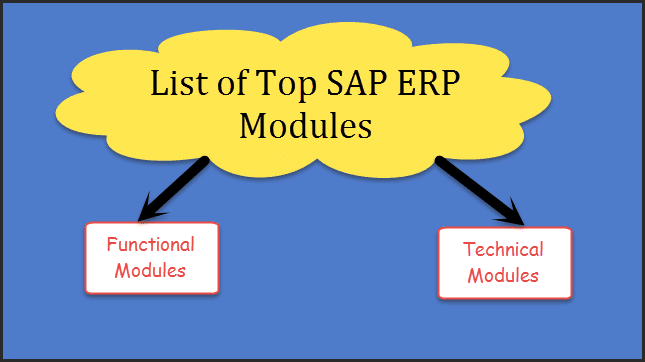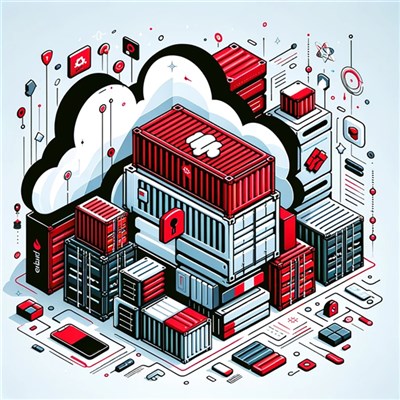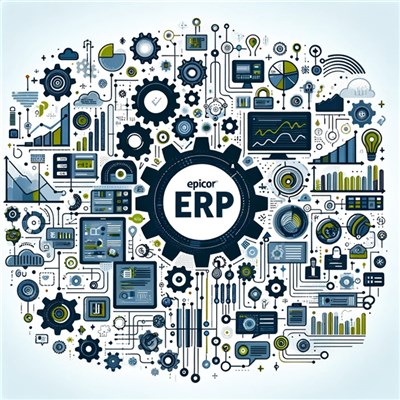
Systems Analysis and Program Development, shortly known as SAP have been growing tremendously with new SAP modules being developed to serve different business sectors ranging from operations management, human resources, financial accounting and sales besides others.
SAP has gained popularity among working professionals as an SAP training certification deals with Enterprise Resource Planning , which is essential for big corporates and enterprise-level companies to efficiently streamline their workforce.
The wide range of SAP Modules available belongs to ERP which allows an organization’s different departments to work together on a unified platform towards a primary goal. In the past, enterprise resource planning was originally used to manage an inventory. Later on, different types of processes were developed pertaining to various aspects of a business. Today, SAP is an integral part of the IT domain and is being used in almost every type of application ranging from data management, document processing and to automate the workflow.
By successfully completing an SAP certification in one of your chosen categories,it is easier to acquire a respectable position, be eligible to manage the software and attract better job prospects in your desired industry.
SAP Modules – What Are They and How They Work?
The SAP ERP modules are divided into various categories based on different industrial applications. They are also segregated based on the big brands that use them and smaller companies tend to replicate the same for efficient operation.
The SAP modules are divided into Functional and Technical modules under which all the below said categories fall in place.
The major modules prevalently used by professionals are:
List of SAP ERP Modules
- SAP Financial Planning
- SAP Human Capital Management
- SAP Production Planning
- SAP Sales and Distribution
- SAP Controlling
- SAP Quality Management
- SAP Project Systems
- SAP Financial Supply Chain Management
- SAP Materials Management
- SAP Plant Maintenance
Also Read- SAP Interview Questions and Answers
SAP Financial Planning
Financial planning sap is designed to simplify the process of financial management and to bring all transactions in an organization in a unified system. the setup brings transparency and allows the financial head to understand the strengths, reduce expenses when possible and make an infor med decision. the versatile and flexible module can be used by organizations of every type, helping them consolidate their date.
SAP Human Capital Management
SAP Human Capital is made for the HR management department allowing the professionals to easily keep track of an employee’s performance, suggest appraisals, evaluate their efficiency and handle promotions. The system can also be used to process payroll, employee onboarding and create a task flow to streamline processes irrespective of how big the employee count is in an enterprise.
SAP Production Planning
An important module in the list, SAP Production Planning allows an administrator to manage everyday operations, plan sales, marketing activities, manage cost, materials inventory and distribute available resources accordingly for maximum results. The module simplifies planning and management, providing a better view of investments to make and utilize the resources generated to achieve their targets.
SAP Sales and Distribution
SAP Sales and Distribution is an important module for every industry that handles their customers directly. The module can be used to request a quote, create quotations, proposals, add or modify invoices among many other activities. When a professional acquires an SAP certification in one of these important modules, they can procure a job in the respective department. The module also helps streamline shipping, transportation, maintain feedback, bills and credit management.
SAP Controlling
Designed for enterprises with demanding requirements, SAP Controlling module provides decision makers with an overview of business operations and all its departments. The module makes it easier to manage costs, investments and track expenses. Controlling acts as a centralized system providing a center to monitor costs, profit and internal orders to make decisions based on immediate requirements.
SAP Quality Management
Every enterprise is expected to maintain the highest level of quality. The SAP quality management module allows them to operate in a structured manner to deliver the best quality in all their products. Ranging from production, planning and inspection to sales and quality monitoring, everything is carried in a unified interface. The quality checks are regular and it simplifies audit management to ensure best quality irrespective of the number of products being shipped during a timeline.
SAP Project Systems
SAP Project Systems is a module dedicated to helping a team or the entire organization plan a project in a planned manner. By using the module, the experts can start from planning to preparation, tracking and create detailed reports. When the module is followed successfully, it also helps assess project costs, elements involved and resources required to successfully carry out the proposed project.
SAP Financial Supply Chain Management
Another important module in the list, SAP financial supply chain management deals with credit management and to easily manage an enterprise’s financial requirements with enough headroom. The module is used to manage cash, liquidity state, treasure and also foresee risks involved in an investment. Further, into the lifecycle of the financial supply chain, it can also be used to manage disputes, payments and acts as a platform to monitor collections for the products supplied during a specific time period.
SAP Materials Management
This SAP module deals with everything related to materials management including purchasing the necessary materials, maintaining an inventory, evaluate the inventory, keeping track of the quality of goods supplied by a vendor, rate them and verify invoices sent by the vendor. The module can also be used to keep track of statutory requirements.
SAP Plant Maintenance
For enterprises which have dedicated manufacturing plants, SAP plant maintenance module allows them to take control of various aspects of maintaining an industrial setup. The unified system facilitates engineers to plan maintenance, breakdown, preventive measures and predictive systems to ensure continuous production.
ALSO Read: SAP Courses: Overview, Eligibility, Fees, Duration & Modules 2022
While these are the major SAP ERP modules list that you should know of, an SAP certification apart from industrial applications and financial planning can also be acquired in any one of the technical modules that are specific to certain businesses. The most widely known modules include Netweaver, ABAP, SAP Basis, BIW, SAP HANA and XI. By combining the best of these modules, an organization can efficiently manage their resources and stay ahead in a competitive scenario.


min.pngM.jpg)



course.pngM.jpg)

COMMENT